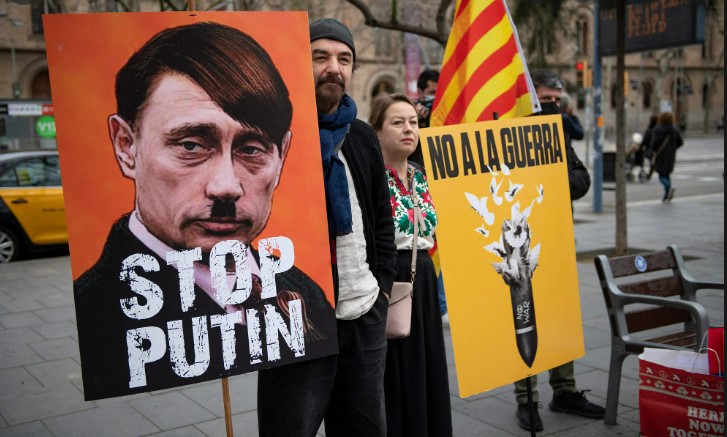
Roving Periscope: Russia fails to pay $100 mn, is on verge of default; may send shockwaves
Virendra Pandit
New Delhi: The cascading effect of the sanctions the West and its allies imposed against Russia after its invasion of Ukraine on February 24 has haunted not only Moscow but also other countries.
On Sunday, the last due date, Russia failed to pay USD 100 million as an interest to its debtors.
Like Sri Lanka and Pakistan, Russia is also on the way to defaulting and cutting itself off from the global financial network. If it defaults, it will send shock waves across the world.
While Sri Lanka and Pakistan have no money to repay international debts worth USD 52 billion and USD 135 billion, respectively, Russia has money, but it is frozen abroad.
Russia owes about USD 40 billion in foreign bonds, nearly half of it to foreigners. Before its invasion of Ukraine, it had some USD 640 billion in foreign currency and gold reserves held abroad, most of which now remain frozen.
In the 1990s, Russia defaulted on its domestic debts but recovered soon with the help of international aid.
According to the media reports, if Russia does default on its international debts it will do so for the first time in over a century—since the Bolshevik Revolution (1917)—and would further alienate the country from the global financial system, due mainly to the West and its allies’ sanctions over its war against Ukraine.
The possibility of Russia’s default emerged on Sunday after a 30-day grace period on interest payments, originally due on May 27, expired. Officially, however, a Russian default may take days and weeks to confirm, the media reported.
“While there is a possibility that some magic could occur” and Russia gets the money through financial institutions to bondholders despite sanctions, “nobody’s making that bet,” said Jay S Auslander, a top sovereign debt lawyer at the firm of Wilk Auslander in New York.
“The overwhelming probability is they won’t be able to because no bank is going to move the money.”
In May, the US Treasury Department ended Russia’s ability to pay its billions of dollars in debt back to international investors through American banks. In response, the Russian Finance Ministry said it would pay dollar-denominated debts in rubles and offer “the opportunity for subsequent conversion into the original currency.”
Russia asserts it has the money to pay its debts, but the waves of sanctions have frozen its foreign currency reserves overseas. Any defaults would, therefore, be artificial.
Last month, Russian Financial Minister Anton Siluanov said Moscow not only has money but also is ready to pay. “This situation, artificially created by an unfriendly country, will not have any effect on Russians’ quality of life.”
The Credit Default Determination Committee—an industry group of banks and investment funds—ruled on June 7 that Russia had failed to pay required additional interest after making a payment on a bond that had the due date of April 4. But the committee put off taking further action due to uncertainty over how sanctions might affect any settlement.
The Western sanctions over the war have sent foreign companies fleeing from Russia and interrupted the country’s trade and financial ties with the rest of the world. Default would be one more symptom of that isolation and disruption.
While the war itself is having devastating consequences in terms of human suffering and higher food and energy prices worldwide, default on government bonds would be “definitely not systemically relevant,” International Monetary Fund Managing Director Kristalina Georgieva has said.













